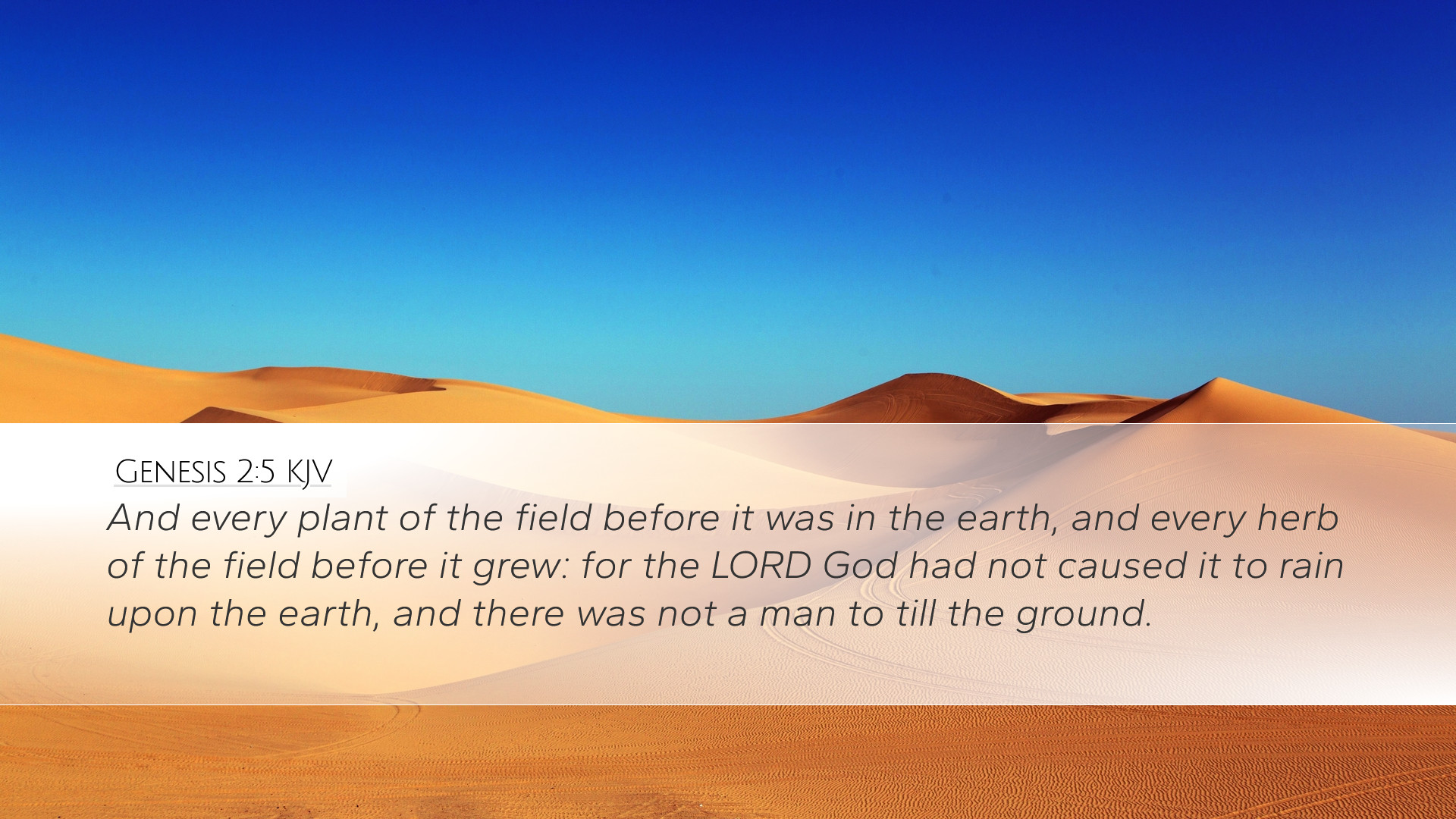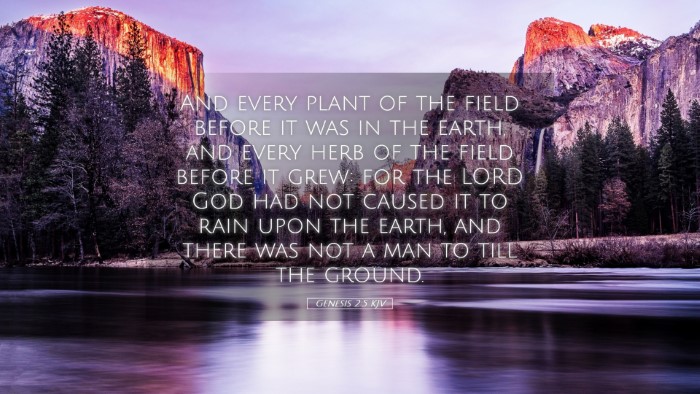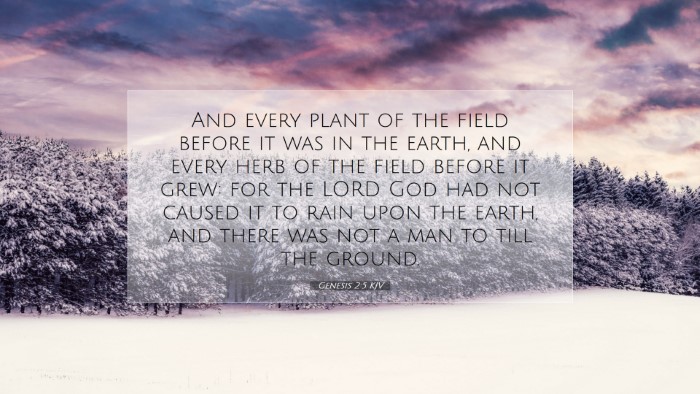Commentary on Genesis 2:5
Genesis 2:5 states: "And every plant of the field before it was in the earth, and every herb of the field before it grew: for the Lord God had not caused it to rain upon the earth, and there was not a man to till the ground." This verse presents significant insights into the condition of the earth before the creation of man and reflects the theological and ecological understanding of the world according to the biblical narrative.
Contextual Background
This verse occurs within the second creation narrative found in Genesis 2. Unlike the first chapter that presents a broad framework of creation, Genesis 2 focuses specifically on the creation of humanity and the environment that sustains it. The verse emphasizes two preliminary conditions: the absence of rain and the lack of a man to cultivate the ground.
The Absence of Rain
According to Matthew Henry, the lack of rain indicates a condition of the earth that is yet to be fully developed; it was waiting for God's intervention. Henry notes that God had designed the earth in such a way to be dependent on divine sustenance, signaling that human cultivation would come into play only after God had made the earth ready for it. He makes a theological point that spiritual growth, much like physical growth, requires the right conditions established by God.
Albert Barnes adds that the statement reflects the “dehumanized” state of creation before man’s presence. He emphasizes that God’s creation of humanity is not simply an act of populating the earth, but one that involves the stewardship of creation. This stewardship is vital; without rain and without a man to tend to it, the flora of the earth remains in a dormant state, indicating a purpose for human existence that aligns with divine intention.
The Role of Man
Henry expands on the necessity of mankind in God’s creation, positing that humanity is intended to have a pivotal role in the cultivation and stewardship of the earth. This suggests that God’s creation is incomplete without human involvement. Adam Clarke highlights the importance of this role, suggesting that humanity is to be an active participant in the unfolding of God’s creation. Clarke suggests that this invites theological reflection on the nature of work and its divine mandate. He presents a view that work is intrinsic to human dignity and purpose, aligning it with God's original design.
Theological Implications
This verse raises profound theological implications regarding creation, dependence, and responsibility. The absence of rain before the creation of man emphasizes the notion that creation requires divine sustenance. Albert Barnes reflects on this by likening the nurturing of plants to God’s providence, where nature is somewhat interwoven with humanity’s need for divine support. God’s sovereignty is underscored, suggesting that everything is under His control and timing.
Moreover, the mention of “no man to till the ground” speaks to the broader narrative of human purpose. Matthew Henry concludes that man was created not just to exist but to fulfill a significant duty—working the land and caring for creation. This prepares the reader to understand that human responsibility is integral to God’s design, signaling the importance of ecological care and sustainable living as part of spiritual life.
Implications for Pastoral Ministry
For pastors, this text calls for a reflection on the relationship between humanity and creation. It invites pastoral teaching on stewardship of the earth and the sacredness of work. The absence of rain can be an image of spiritual barrenness, which pastors may address by focusing on the ways in which communities can cultivate a vibrant spiritual life. Just as plants need nurture and care, so do the souls of the congregation require tending.
Concluding Thoughts
Genesis 2:5 serves as a foundational verse, merging theological, ecological, and existential reflections that remain insightful for contemporary discussions. It underlines the intricate relationship between God, humanity, and creation, compelling us to consider our role within it. Both historically and theologically, this verse invites scholars, students, and theologians to delve deeper into the nature of work and God’s expectations of humanity as caretakers of His creation.
Key Takeaways
- The dependency of creation on divine intervention: Emphasizes that human efforts are always under the providence of God.
- The role of humanity: Highlights the responsibility to cultivate and care for the earth as part of fulfilling God's mandate.
- The integration of spiritual and ecological stewardship: Encourages teaching on sustainable living as part of the Christian faith.


